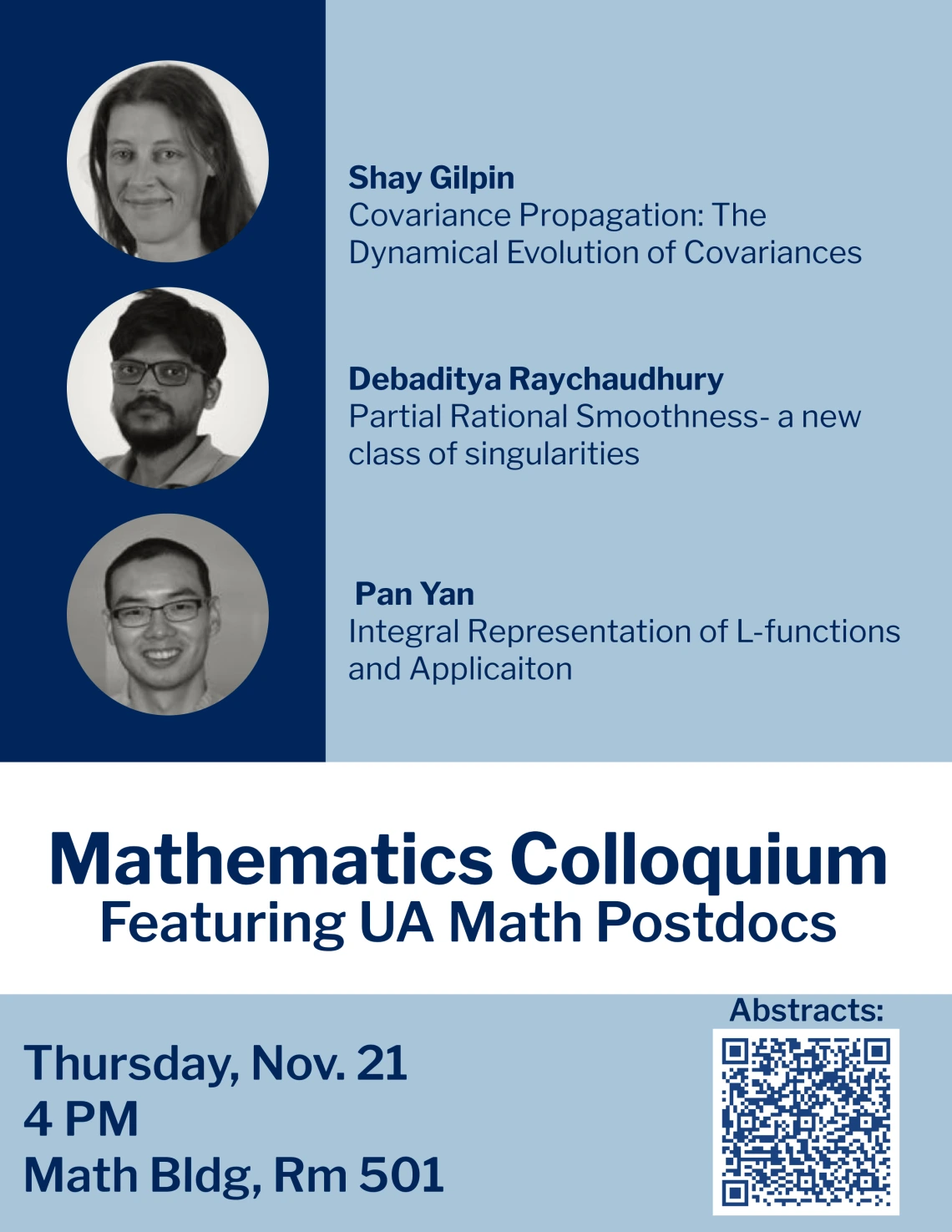Speakers: Shay Gilpin, Debaditya Raychaudhury, Pan Yan

When
Where
Speaker: Shay Gilpin
Title: Covariance Propagation: The Dynamical Evolution of Covariances
Abstract: Covariance propagation, namely the dynamical evolution of covariances associated with states that satisfy a partial differential equation (PDE), is a fundamental component of statistical estimation techniques, such as data assimilation. In this talk, I will introduce covariance propagation for states that satisfy the advection equation and related hyperbolic PDEs. We will see that analyzing covariance propagation in the continuum, using theory from PDEs and functional analysis, provides new and surprising insights into issues that can arise during discrete covariance propagation. These mathematical results have important implications for covariance propagation as practiced in atmospheric science applications, such as for chemical constituent data assimilation.
Speaker: Debaditya Raychaudhury
Title: Partial Rational Smoothness - a new class of singularities
Abstract: Algebraic geometry is the study of "algebraic varieties" which are by definition the shapes defined by the solution sets of polynomial equations. These shapes are not always smooth, i.e., they often have sharp corners, or in other words, they often have singularities. Many important theorems that hold for smooth varieties fail for the singular ones, which is why it is important to classify and understand singularities.
In collaboration with B. Dirks and S. Olano, we introduce a new class of singularities, and we call a variety "partially rationally smooth" if it has this kind of singularities. In this talk, I will give an overview of partial rational smoothness, its connection with some of the other well-studied singularity classes, discuss a few remarkable properties that partially rationally smooth varieties enjoy, and give examples.
Speaker: Pan Yan
Title: Integral representation of L-functions and application
Abstract: L-functions are among the central objects of study in number theory. One fruitful way to study L-functions is through an integral formula, also known as an integral representation. This method has its origin in Riemann’s paper on the Riemann zeta function. In the context of automorphic representations, the theory was first developed by Jacquet and Langlands for GL(2) around 1970, and later by Jacquet, Piatetski-Shapiro, and Shalika for GL(n) in a series of papers. In this talk, I will discuss a joint work with Q. Zhang on a family of integrals which generalizes the Rankin-Selberg convolution integrals of Jacquet, Piatetski-Shapiro, and Shalika. I will conclude by discussing an application to representation theory of p-adic groups, where we use the integral representation to give another proof of Jacquet’s local converse conjecture.

